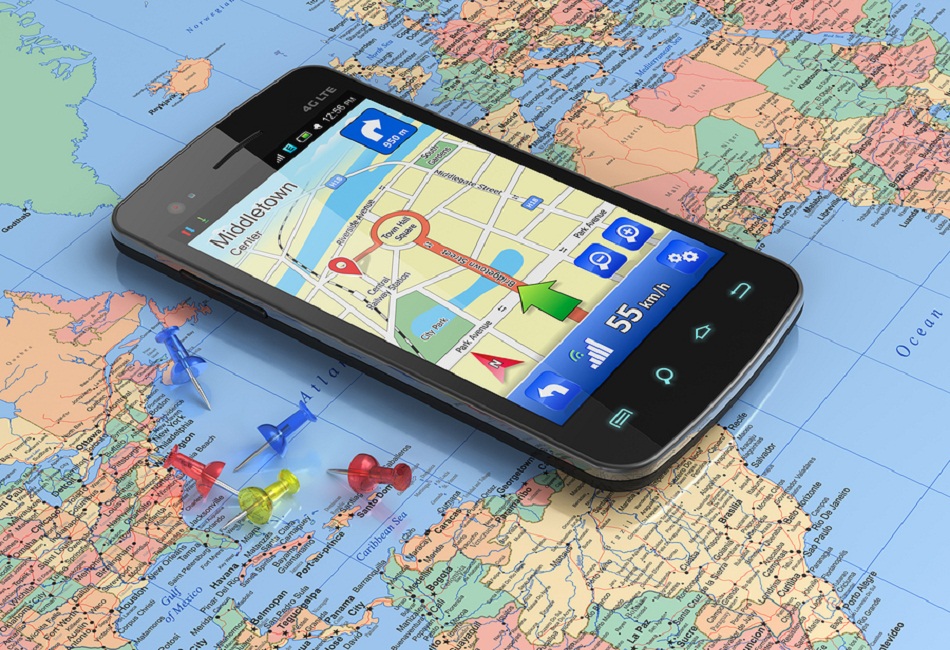More than 70 percent of Americans currently own (and spend a lot of time on) a smartphone. According to a study conducted by the Pew Research Center in 2015, 38 percent of those smartphone users currently have more than 20 apps installed — many of which require (or, at the very least, strongly suggest) enabling location services.
This includes big-name social media apps like Facebook and Instagram, two of the most popular and highest downloaded apps on the planet. But it also includes time tracking and scheduling apps required by some employers, leading to tricky conversations about GPS tracking in the workplace.
According to a recently conducted independent survey, nearly one-third of US employees have already been exposed to GPS tracking at work. When asked about their experience, 95 percent responded "positive" or "neutral," while only 5 percent responded with a negative opinion.
Employees with no previous experience using GPS tracking at work weren't quite so confident. Only 16 percent of these employees felt positively about location tracking in the workplace. Another 38 percent felt negatively, and 6 percent even threatened to quit if GPS tracking were introduced at work.
It's these employees — the employees who are unfamiliar with GPS tracking in the workplace and more likely to respond with negativity — you'll have to work the hardest to convince when it comes to introducing a GPS tracking policy to your company. Chances are, some employees might respond with fear and resistance, so it's important to enter the discussion prepared to address their concerns and answer their questions before allowing negative misconceptions to take over.
Taking a proactive approach by talking to employees before introducing GPS at work can make all the difference for a smooth transition.
- Know the legalities of GPS tracking in the workplace.
Tracking employees 24 hours a day is seriously frowned upon in all 50 states. It's a major violation of privacy laws and could land you a hefty lawsuit. But there's no law against tracking employees while they're on the clock.
Some states (including California and Wisconsin) require employers to obtain employee consent before enabling location tracking at work. Failing to abide by these state laws can result in large fines or even jail time.
Meet with your employment counsel before implementing your GPS policy at work to make sure you understand the full legalities of GPS and privacy laws in your state.
From there (and regardless of your state laws), choose a GPS tracking system that respects your employees' private time by only tracking their location while they're actually on the clock — and always tell your employees before you start using it.
- Know the benefits of GPS tracking in the workplace for employees.
As a business owner, it's easy to understand the value of workplace GPS. It increases employee accountability and decreases the risk of time theft or buddy punching. But, for employees, the advantages might not be so obvious.
Fortunately, according to the independent survey, both employees who have used GPS tracking in the past and those who haven't saw some serious benefits to adopting the technology at work.
Three out of four employees believe GPS tracking at work would enable them to more accurately track mileage and travel time, ensure paycheck accuracy, and keep them safer on the job. Another 50 percent of those surveyed believe GPS tracking would help them work more efficiently and build trust with their employer.
Outline these benefits from the beginning and you'll likely see more buy-in from your team.
- Know the impact on data and battery useage.
You might assume that your employees are resisting GPS tracking in the workplace because they've got something to hide, or because they don't want their boss knowing where they are while they're on the clock. But the data tells a different story.
When it comes to installing workplace GPS apps on a personal device, the No. 1 concern for employees across the board is data and battery drain.
Knowing this, do your research beforehand. Find out exactly how much data your GPS app is expected to use and determine what the impact will be on mobile device's battery life. Then, show your employees how to keep an eye on data and battery usage by app for themselves.
In most cases, workplace GPS apps use far less of these resources than popular apps like Facebook and SnapChat. By educating employees about the app you're expecting them to install, you'll instill more confidence.
Remember, GPS tracking in the workplace is on the rise. And while one in three employees might embrace your new GPS policy with open arms, the other 65 percent might not be so willing. Approach the conversation armed with knowledge, positivity, and confidence and you're sure to see success.
Latest posts by Tresha Moreland (see all)
- Recession 2008 Versus 2024: Lessons Learned and Key Workforce Differences - April 24, 2024
- Why Layoffs Fall Short: Embracing a Holistic Approach to Cost Savings - April 21, 2024
- Find Your Anchor In A Sea Of Fear - April 18, 2024













